
Weekly Tip 96 - Sustainable Note-Taking - Make The Switch
Have you ever considered sustainable note-taking?
Everyone takes notes throughout their lives, from school onwards, people use pens and paper or tech to record important information. But as with pretty much everything in modern life, some things are less sustainable than others.
This week’s tip aims to provide you with all the information you need to feel empowered to make more conscious decisions when it comes to notetaking. From the history and environmental impact of notetaking tools to signposting products and ways to be more sustainable.
Hopefully, by reading on today, you can be part of the change we all need to see in the world.
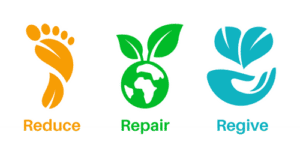
The History of Note-taking
Notetaking, in the form of written records, has a long history dating back to ancient civilizations.
The ancient Egyptians used papyrus to record information in the form of hieroglyphics.
Similarly, the ancient Mesopotamians used clay tablets to record information using cuneiform script.
During the Middle Ages, monks used parchment and quills to record religious texts and other important information. In the 15th century, the invention of the printing press made it possible to mass-produce books, leading to an increase in written records. The 19th century saw the invention of the fountain pen, making notetaking more convenient and efficient.
In the 20th century, the invention of the typewriter and later, the personal computer, revolutionized notetaking. With the advent of the internet, note-taking has become even more convenient and accessible.
While technology has advanced, the traditional method of written note-taking still remains popular. Many students and professionals still prefer to take notes by hand, as it is believed to improve memory retention.
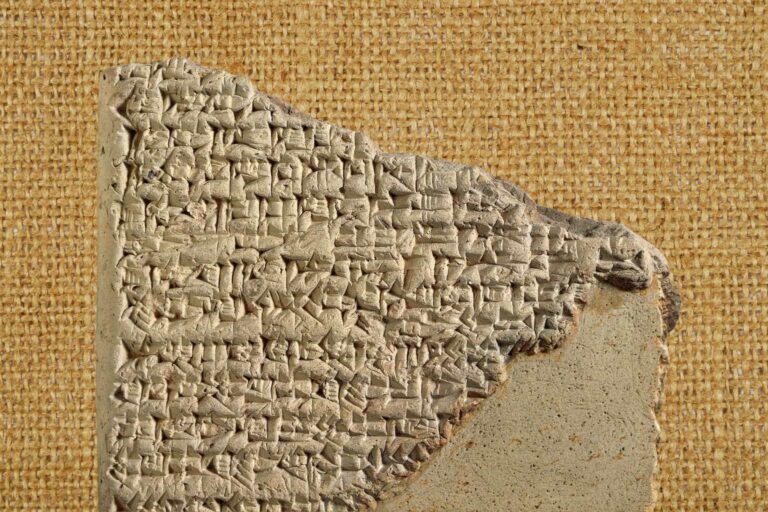
Overall, written note-taking has a rich history, evolving from the papyrus and clay tablets of ancient civilizations to the digital notes of today.
How sustainable is note-taking?
Whether you use the old 19th-century way of notetaking or the 21st-century way of using some form of tech, your actions will have a footprint.
As the two formats are so different it’s actually quite hard to compare them, but let’s have a go.
The Environmental Paper Network found that creating only one sheet of paper without any recycled material results in the atmospheric release of 0.02 kg of CO2.
An iPad, on the other hand, consumes roughly 3 watts per hour and emits 0.002 KG of CO2.
This means that it would take more than seven hours of note-taking on an iPad to produce more greenhouse gas emissions than a single sheet of paper.
Even using recycled paper only reduces the impact by just under half, meaning you could still use your iPad for 4 hours for each sheet of paper!
Paper also raises other issues such as deforestation, waste and water use.
Although recycled paper does away with some of this, water use is still an issue.

Although the production of tablets doesn’t directly contribute to the destruction of forests, they do require rare earth metals like coltan.
Unfortunately, these are mined in politically and environmentally sensitive regions like the Congo and often come with human rights issues.
What to do for sustainable note-taking?
The simple answer to this question is, you shouldn’t purchase anything you don’t need. So, rather than purchasing reams of paper, utilise your tablet if you already have one to take notes. And wait as long as you can before purchasing a new tablet.
Consider your options before purchasing a tablet solely for taking notes. You would be doing the Earth a favour.
If you do want to take notes on paper, always buy recycled, it’s far better for the planet and its resources (but still gets thrown away and does come with some footprint).
You can also consider hybrid models. These are a combination of traditional pen and ink notetaking and modern technology.
Hybrid notetaking normally involves a reusable pad that has a wipeable surface.
Once you have taken your notes, they can be photographed and digitised using an app on your phone.
This means that you can put the digital notes anywhere, whilst still using a pad and pen to enhance your memory.
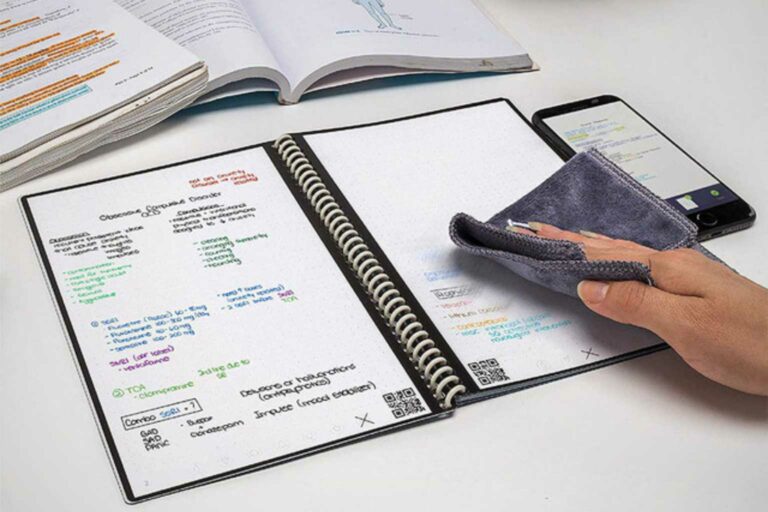
With the pad being reusable your footprint is reduced and it
will outlast any iPad or paper pad. A great option to consider when it comes to sustainable note-taking.
Some sustainable note-taking products we love
Microsoft OneNote
Microsoft OneNote is the best free note-taking app and is a strong contender for the best overall note-taking apps. Unless you know you need a specific set of features that it does not provide, it should be the first app that most people try.
When it comes to taking notes, OneNote is extremely flexible, allowing it to adapt to whatever your specific requirements are. Because each Notebook is modelled after a ring-binder, it is divided into sections with subsections known as pages.
It works with Android and Apple and so is a great choice for sustainable note-taking.
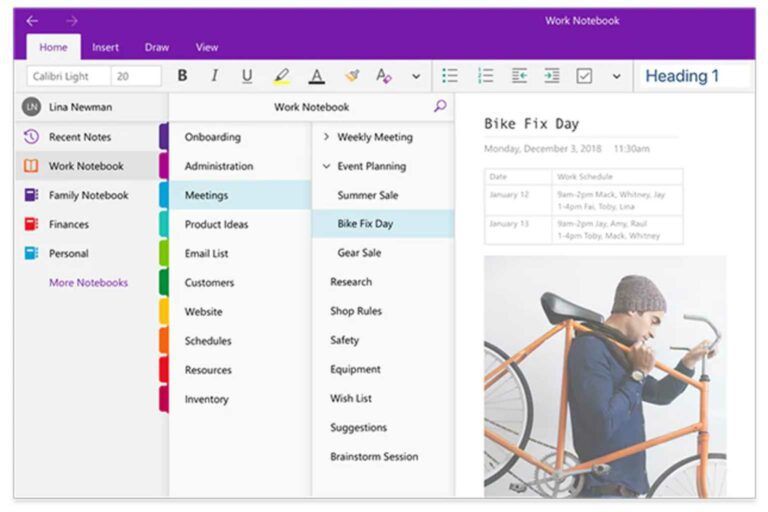
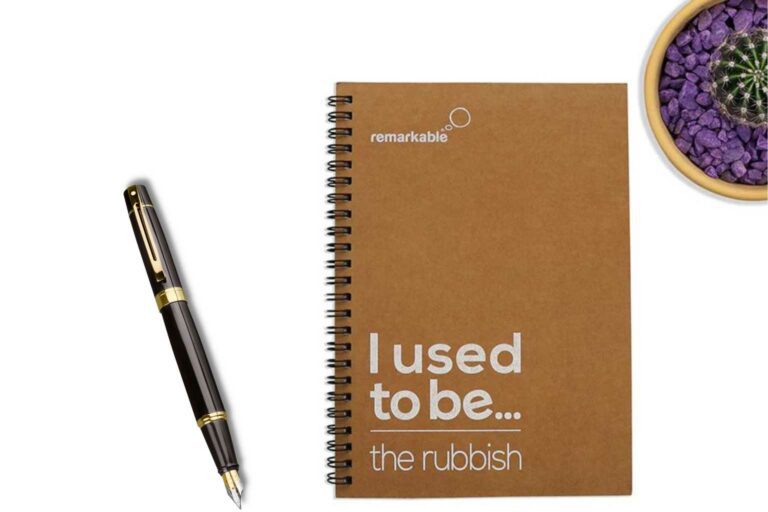
Remarkable
If you want to go traditional and buy a paper pad to take notes on, look no further than Remakrable’s r-Rubbish A4 Notebook. It’s made from recycled ‘packaging’ and ‘closed loop’ recycled paper, collected in the UK.
Every year, the UK consumes approximately 10 million tonnes of packaging, of which approximately 60% is recovered. This notepad gives a second life and purpose to a discarded resource, reducing environmental impact with a new approach.
Remarkable collect the paper and packaging, clean it, convert it to pulp, process it back to paper, print it, and then put it in the notepad!
This is a great sustainable note-taking option if you can’t or don’t want to go high-tech.
Rocketbook
Our final product is a great sustainable notetaking option used by one of Play It Green’s founders.
It’s called Rocketbook and is a hybrid technology which evolves the existing notebook and connects it to your phone or computer!
Use any of their reusable notetaking products for a traditional handwriting experience that actually improves your intelligence (Google It!).
All your notes can then be transferred to your PC or phone using their free app. Then, simply wipe the pad clean and start again!
Best of all, if you head over to their shop now you can use the code 2JREEVES15 at checkout to receive a 15% discount!
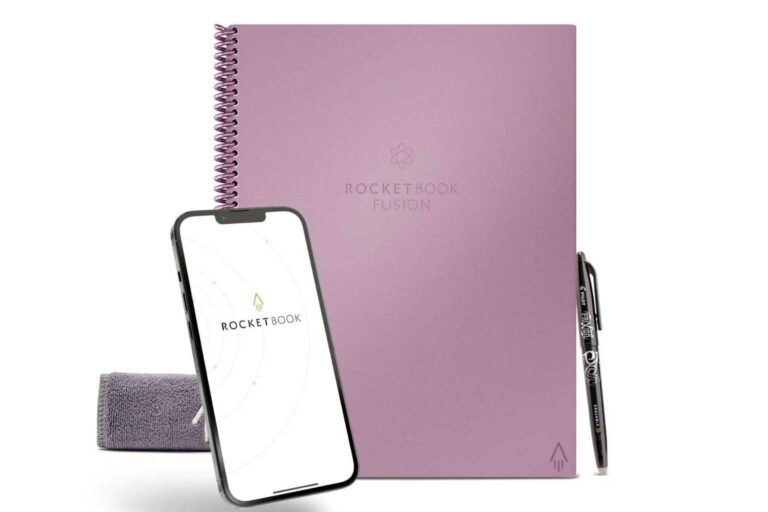
That’s it – welcome to the world of sustainable notetaking!
We hope the article has given you some new knowledge and that you feel empowered to make a sustainable change.
If you want to make an even bigger change, recommend your business changes to sustainable notetaking!
Thanks for reading and have a great rest of your day!
Play It Green is a subscription service that helps people and businesses.
Through our 3-step solution, we support footprint reduction, repairing the planet (through reforestation) and increasing social impact by regiving 10% of turnover to charity.
For £5 per person per month, we send out a weekly newsletter with our weekly tip, sustainable discounts, news and education.
Following this, we plant thirteen trees each month with our partner Eden Reforestation in Madagascar and then give 10% of the subscription to a charity of your choice.
That’s a lot of positive impact and value for less than a coffee and a piece of cake!
You can use the button below to sign up!






